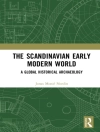The modern enterprise of anthropology, with all of its important implications for cross-cultural perceptions, perspectives, and self-consciousness emerged from the eighteenth-century intellectual context of the Enlightenment. If the Renaissance discovered perspective in art, it was the Enlightenment that articulated and explored the problem of perspective in viewing history, culture, and society. If the Renaissance was the age of oceanic discovery—most dramatically the discovery of the New World of America—the critical reflections of the Enlightenment brought about an intellectual rediscovery of the New World and thus laid the foundations for modern anthropology. The contributions that constitute this book present the multiple anthropological facets of the Enlightenment, and suggest that the character of its intellectual engagements—acknowledging global diversity, interpreting human societies, and bridging cultural difference—must be understood as a whole to be fundamentally anthropological.
Sobre el autor
Larry Wolff is Professor of History at New York University. His books include
Inventing Eastern Europe: The Map of Civilization on the Mind of the Enlightenment (Stanford, 1994), and
Venice and the Slavs: The Discovery of Dalmatia in the Age of Enlightenment (Stanford, 2001). Marco Cipolloni is Professor and Chair of Spanish Language and Culture at the University of Modena and Reggio Emilia. His works include
Il sovrano e la corte nelle ‘cartas’ della Conquista(1991),
Tra memoria apostolica e racconto profetico: Il compromesso etnografico francescano e le ‘cosas’ della Nuova Spagna, (1994), and the critical edition of the
Teatro completo of Miguel Angel Asturias (2003).












